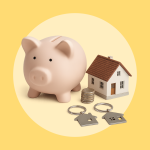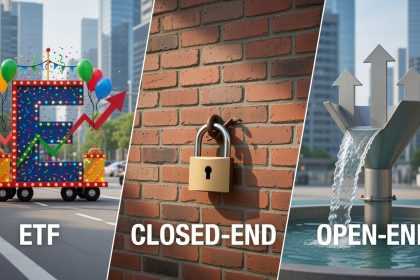You know the feeling—you get that paycheck, and for a moment, everything feels like it’s falling into place. You breathe a little easier, maybe treat yourself, pay some bills, and then before you know it, you’re left wondering: Where did all the money go?
If that sounds familiar, you’re not alone. I’ve been there too—even as a financial expert. What changed the game for me wasn’t just budgeting harder or cutting out all my fun—it was being intentional with how I handled my paycheck the moment it hit my account.
So today, I’m breaking down 7 essential things to do as soon as you get paid. These are habits I personally follow and teach, and they’ve helped me stay consistent with saving, investing, managing bills. And yes, still enjoying life.
Let’s get into it.
1. Pause before you spend anything
Before you pay a bill or hit “add to cart,” pause.
This one habit puts you back in the driver’s seat. You worked hard for this paycheck, don’t let it disappear on autopilot spending. Give yourself a moment to check in:
- Review your bank accounts
- Make sure the correct amount was deposited
- Confirm your money is in the right accounts
- Look ahead at upcoming bills and due dates
This simple pause helps you approach your money from a place of clarity, not stress or emotion.
2. Pay yourself first automatically
Let me repeat something I say often: Do not wait to save what’s left over. Save first. Period.
This is the foundation of building wealth, and it’s something I swear by. The easiest way to make it stick? Automate it.
Over time, this habit will change your financial life. It’s about building consistency, not perfection.
3. Cover your essentials and review spending trends
Once you’ve saved, take care of your essentials: rent or mortgage, groceries, insurance, childcare, debt payments, whatever your non-negotiables are.
But don’t stop at paying bills. Look at the trends:
- Are your grocery or dining costs creeping up?
- Did a utility bill spike this month?
- Is your phone plan still competitive?
This check-in helps you spot small leaks before they become floods. Reviewing trends lets you make informed decisions and reroute funds toward what matters most.
4. Tune up your budget
After reviewing your spending patterns, it’s time to adjust your budget, not just stick to the old one out of habit.
- Update your budget with real numbers, not guesses
- Reflect any new goals, events, or changes in income
- Check your progress toward debt repayment, savings, or investing targets
Think of your budget as a living document. It’s meant to be reviewed and refreshed regularly. Staying flexible helps you stay in control.
5. Put money toward your future goals
Every paycheck is a chance to move one step closer to the future you want.
Use part of it to:
These small, consistent steps compound over time. Even if you’re starting with just $20 a month, the habit you’re forming is powerful.
If you need guidance, the Clever Girl Finance My Wealth Plan Workbook is designed to help you clarify your goals and build a personalized plan.
6. Do a mindset check-in
Money is emotional, and it’s easy to overlook that.
I schedule a 15–30 minute mindset check-in every time I get paid. Here’s what I ask myself:
- What went well this month?
- What challenges came up?
- Where did I spend impulsively—and why?
Then, I make sure to celebrate a win, big or small. Even cooking at home more often or avoiding one impulse purchase counts.
Financial growth includes self-awareness. This habit has helped me shift from feeling reactive with money to feeling in control.
7. Set boundaries before you spend
Before you start swiping your card or browsing online, decide on your financial boundaries.
- Create a fun money allowance. Yes, it’s okay to enjoy your money!
- Note any upcoming events, birthdays, holidays, travel, and budget accordingly
- Decide what’s worth spending on this month, and what can wait
This helps prevent impulse spending and ensures your money goes where it matters most to you.
Why this system works
When you approach your paycheck with intention: pausing, planning, and prioritizing. You’re no longer letting your money run the show. You’re in charge.
You don’t have to get everything perfect. You just have to start. Begin with one of these seven habits, and build from there. Real change happens one smart move at a time.
Expert tip: Every paycheck is a decision point
The choices you make in those first 24–48 hours after getting paid will either move you closer to your goals—or keep you stuck in survival mode. It doesn’t take perfection, just consistency and intention.
Frequently asked questions when you get paid (FAQs)
What’s the best thing to do first when I get paid?
Start by pausing and reviewing your accounts. Make sure your paycheck hit correctly and check your upcoming bills. Then pay yourself first by transferring money into savings or investments automatically. This gives you a solid foundation before you pay bills or spend anything.
How much should I save from each paycheck?
That depends on your income and expenses, but aim to start with at least 10–20% if you can. If that feels out of reach, start small, $25 is better than nothing. The goal is to build the habit first, then increase the amount over time.
Is it okay to spend money on fun after I get paid?
Yes! Your budget should reflect your whole life, including joy. Set aside a specific amount as a personal allowance or “fun fund.” When you plan for it, you avoid guilt and stay in control. Balance is the key.
How often should I update my budget?
Ideally, review and update your budget every paycheck. It keeps you aware of your spending and helps you adjust quickly when things change, whether it’s an unexpected expense or a new savings goal.
Related articles
If you enjoyed this article, check out this related content:
Final thoughts: It’s not about being perfect with money
Getting paid is more than just a relief, it’s an opportunity. An opportunity to gain control. To break the cycle of paycheck-to-paycheck living. To prioritize your goals. And to build the life you really want, one intentional step at a time.
You don’t have to be perfect with your money, you just have to start. So next time your paycheck hits your account, take a deep breath, follow these seven steps, and make your money work for you.
Read the full article here
















